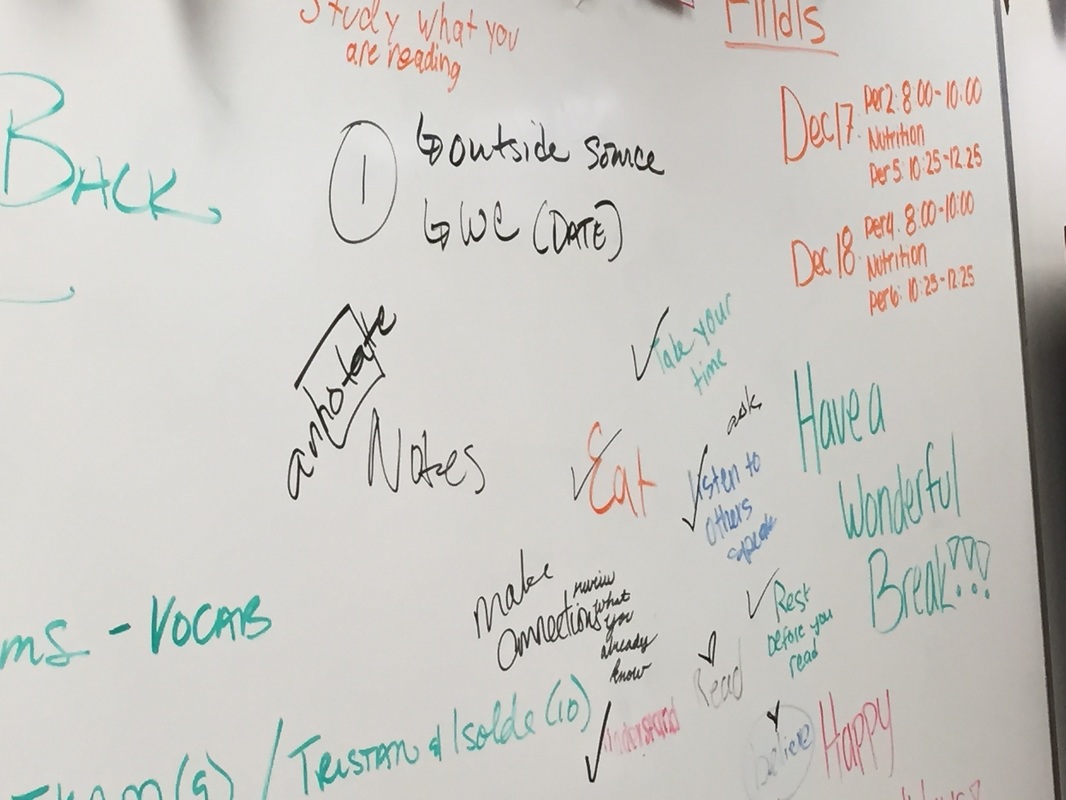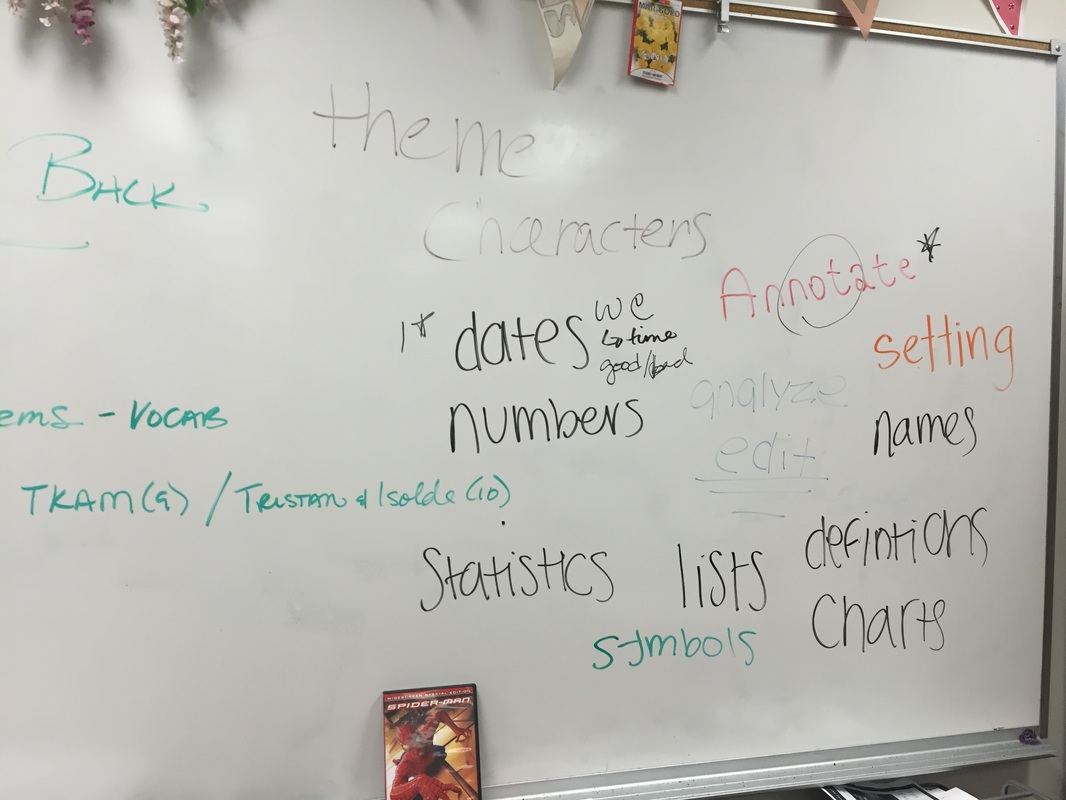|
Continuing our look at the context of Lee's To Kill a Mockingbird, we move backward from zombies and the fears that overcome us, eat us alive, and follow us into our homes, to one of the most important speeches ever made. Most people have heard of this speech and most people can quote one line "I have a dream that someday..." BUT what Dr. King really say? What did it sound like, feel like to be there? Why was this such a critical moment and did we listen to him and the thousands voices that he was speaking for who were silenced? Remember the zombies are coming...could it have been prevented? We are going to annotate, but we aren't going to just read-- we are going to listen.
0 Comments
Our next novel: To Kill a Mockingbird Harper Lee's look at prejudice in America in the late 1950's (published in 1960). The novel is written with both hope for the future and an overwhelming sadness of things to come if there is no change. We will be looking at both of those sides as we examine the novel in context alongside Dr. King's "I Have a Dream" Speech from 1963 and Romero's vision in Night of the Living Dead from 1968. Did things get better or worse, or both? And are we done or do we still have a ways to go? Moving backward, we begin with Romeo because Lee was very concerned with the spread of Maycomb's "usual disease." Check out our film review and trailer. Bring ID to check out To Kill a Mockingbird on Thursday/Friday.
As we discussed with our expository essay, when we annotate we need to know what to look for in a specific class or specific type of writing. In math, look for the formulas. In history, look for names and dates, cause and effect. In English, our authors use literary tools or devices to get their point across. We have talked about several: symbolism, archetype, motif, juxtaposition, allegory and so on. If you don't know what's out there- it not only makes annotating and essay writing hard, it can make reading harder than it should be. Here is the list we will focus on this year. There will be time in class to go over terms with a group. Please get a good definition and discuss examples. (If you want to use or print it: there is a dictionary button below. There is extra space after each definition for an example or notes. Dictionaries will be available in class. You may take notes on your own paper.) THEN- don't forget to STUDY at home. :) Everyone will take the test 2 times. Hopefully, you get a 100% each time. If not, this is your chance to better your score. Each test 100 pts. Time frame: Class time- 1/7-8 Unannounced partner quiz (LOL): sometime January 19-29 Test #1: 2/3-4 Test #2: 2/17-18 Literary Terms
Expository Essays- How to Read :) Our first essay back is an expository essay! What is that? You are writing a textbook or Wikipedia article about "How To Read." In class we already wrote our introductory paragraphs. Why do we need to read more, practice, and try again. Why is reading, the best way to get better at both reading and writing? Each class we will continue to discuss what steps we take to read better, organize those steps, and explain each. Please use pictures, charts, outlines, lists, examples- whatever helps you get your point across. This is by you, for you. All first semester we worked on strategies. Now it is your turn to own it. :) Summer is coming! You are writing your own textbook for your future English classes. :) Time frame: We will work on this in class the next two weeks. Due typed, on turnitin.com, and in class 1/21-22 Need More Help? |
Categories
All
Archives
April 2020
|


 RSS Feed
RSS Feed